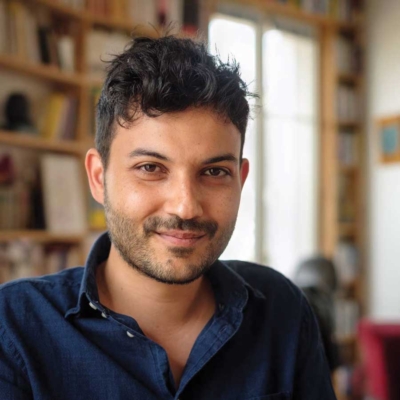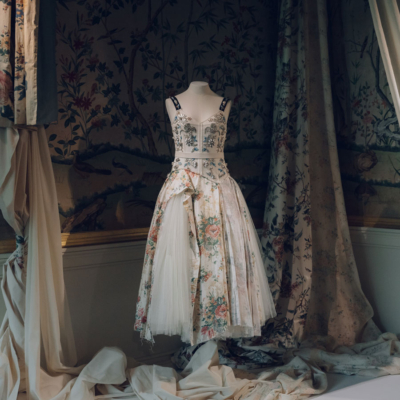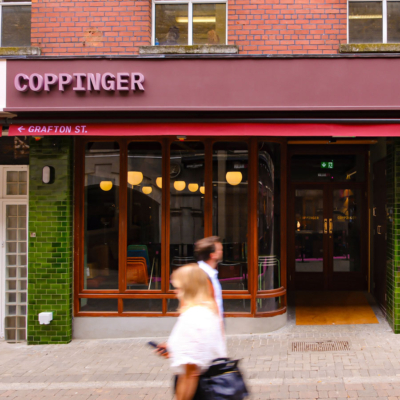Ilsa Carter can’t get to her little bolthole on Ibiza’s unspoiled sister island, with its salt marshes and diverse wildlife, but it’s always on her mind …
We can only wonder why the French surgeon, a man of few words, born to Italian immigrants in Algeria, before its war of independence, paid the German woman, who wintered on the small Spanish island. She agreed to look after the feline he’d befriended, while summering in his holiday home. The casa was sold to him 60 years ago on a day he’d flown alone, from Paris to Spain, carrying a single suitcase. Did the doctor doubt he would return?
He bought this house at the notary’s office in Ibiza, and after that he brought his beloved Venus, because just between us, having an Irish Setter around makes everything so much better. This was during an era on the island when bands like Pink Floyd, King Crimson and Bob Dylan dawdled alongside the quiet American draft dodgers avoiding Vietnam.
The doctor’s abode is a fair distance from where Princess Grace of Monaco anchored her yacht, for a frolic in the famed mud bath. You couldn’t say it was close to the tattooed nudists or a middle-class migration from Barcelona that occupied the beaches of Migjorn. But it was also miles away from the sopa del dia and tequila shots at the island’s only legitimate bar, Julian’s La Fonda Pepe.
Inhabited or not, the house remains an unsinkable finca, whose stubborness has weathered two hundred Tramuntanas, a winter wind which pierces the Pyrenees. Steadfast, it withstands the contraband red sands blasted by a North African Sirocco in summer, and the other six Mediterranean zephyrs, waiting in the wings.

From the mezzanine level of a mansion, the architect Philippe Stark built to resemble the Villa Malaparte on Capri, he probably can’t smell the sulphuric fumes and decomposing algae of the nearby inland lagoon. All due to a triple concentration of salt, it boasts a biblical buoyancy, but anything larger than indigenous wildlife is forbidden to float. Seen from the other side of this diminutive Dead Sea, what appears to be an albino caterpillar of cabanas, are the casa’s noble bones bleaching, like a long lone crocodile condoned, in the centre of Ses Salinas.
Saltworks such as this one, and its sister on Ibiza, grind those grains we throw over our shoulder, for good luck. The molinos predate Generalissimo Franco’s White Terror, and Queen Isabella’s marriage to Ferdinand II of Aragon, whose wedding combined their crowns, to create The Catholic Monarchy with a court at Madrid. Uniting Spain secured the realm of a royal couple that would rule over the Reconquista, and an unequalled empire of real estate, including the denuding and deluding of the New World.
The salt mill hasn’t had a day off since the Carthaginians came to extract the pillars and plumes of sodium chloride crystals that bloom like petals in colours so captivating, one could forgive them for falling out of a sunset. Perhaps people have always pursued that positive charge from the ions of an electrolyte, the profound alchemy of an essential element that promises purification, impregnated into flakes that float up onto a silky surface, ensconced in evaporation ponds, built five centuries before Christ.

Despite clusters of Covid-19 flustering the continent, there was a notable absence of cases on Formentera, the runt of four islands jutting out of seas just south of Barcelona. Known as The Balearics, they were the Iberian Peninsula’s last bastions against Vandals, Byzantines, Vikings and the Black Death, harbouring Saracen pirates from the Barbary Coast, before Kate Moss and the armada of Miuccia Prada.
Then and now, these beaches of astounding biodiversity, attract the high fidelity of fledgling flamingos en route to Africa. These migratory birds flex their fishing rights in an archipelago that features transparent waters filtered by Posidonia, a precious seaweed and guardian of an otherwise elusive aquamarine hue.
Year-round residents like that hausfrau whom the doctor commissioned to feed the cat, were living under a lockdown. Designed for urban epicentres, it simply didn’t apply, and to boot, it was being imposed by the same centralised government Catalonian separatists had been railing about, without fail, since they’d sided with Bourbon France against a 17th century Hapsburg Spain.

Because the hausfrau feared to travel that far from home, the Columbian caretaker was contacted. The Spanish word for luck is suerte and this cat must have had it in spades, because the Columbiana’s husband was seconded. A construction worker by trade, Mario was engaged on an infrastructure contract deemed essential. It was at the roadblock he encountered entering The Salinas, that Mario’s mission became mired. A tired pair in uniforms from the Guardia Civil pointed out that his official access had been granted, but for an address nowhere near where he was headed.
Bravado breaking down, Mario came clean. Forbidden fresh water and food, he told the duo, the cat would die. Punctuated by a final frown, he made clear she was so small, and had only one good eye. His confession to the cops was a qualified success, in that to an extent, the Guardia Civil gave in, through a semi-severe smirk, and on one condition. Might they accompany Mario, to get a glimpse of this creature so crucial, that she enjoyed the services of a local Latino swat team, sponsored by a French surgeon in absentia?
Perhaps you’re aware that the rouge we use on our lips, cheeks and eyes relies on an edible cactus called the prickly pear. To be more specific, on the dried and crushed bodies of an insect cultivated there. Feminists will despair that it is only female cochineals that proffer this scarlet dye. The real deal is that it’s also found in food.

And because she was in the mood for a happy meal, out of an exceptional example of that prolific Mexican plant, crept Pequeña. The petite feline stood firm on four furry sticks, like the ones used to prop up the magnificent fig trees, yet somehow incorporated the elegance of olive laden branches. She seemed sturdy as the parasol pines striving to provide a dappled shade to the terrace, which in turn, was surrounded by manmade walls of stone. These served as a kind of pueblo, for the pipistrelles, lizards, and lirones (dormice). What she would’ve lived on, left to her own devices.
Moving more like a miniature pony, she galloped over to the grinning guards. In a proprietary fashion, their new aficionado applied her hind glands to grazing against that razor-sharp crease down the front of an officer’s pantalones, pressed with pride and precision, by the same kind of wife who wields a large kitchen knife. Pequeña’s solo green globe gleamed her gratitude at all three men, until after an abrupt salute they departed, with an attitude that transcended their original dispute.

In the pandemic days, the premium on protective gear outperformed the normal price of human trafficking. So, Air France not a quasi-governmental company to take chances, grounded its fleet, except for a few precious cargo planes. Under these salubrious skies, April in Paris brought that fabulous 1950s feeling back to the Champs de Mars. The 7th arrondissement to travel back to a time before. No more gangs jangled tiny Eiffel towers, at the foot of the real thing, in a hurry to hawk these made-in-china souvenirs, for a song, to throngs who’d clearly flown in on Cathay Pacific, from Hong Kong.
The Free French in Haussmann havens are the turbaned maven type. Superbly urban germaphobes who wear Labradorite in their lobes. They wipe microbes off their poodle paws, and Pomeranians duly employed mean no furniture is destroyed. It’s also their only out clause in a Paris deprived a Minister of Stealth, like Simon Harris.
Exiled from Formentera and the saline solution of his casa, the doctor borrowed his neighbour’s canine, to avoid the hefty fine. He left with his wife and the dog, to walk around. Talking to her, he found they disagreed on the breed. Seems an ancient Egyptian pedigree can stow away to wherever maritime winds blow, so one woman’s Podenco hound is another’s Maltese Pharoah.
No man is an island, but those self-sufficient Formenterans cancelled the Full Moon Rave. Saving themselves from what the surgeon’s son, who is a surgeon too, calls the second wave.
Read more from Ilsa Carter at www.cassandravoices.com …
LOVETHEGLOSS.IE?
Sign up to our MAILING LIST now for a roundup of the latest fashion, beauty, interiors and entertaining news from THE GLOSS MAGAZINE’s daily dispatches.









